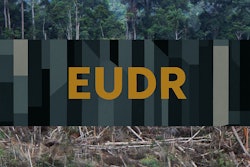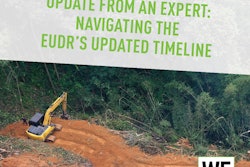The potential for legal liability falls on everyone in the chain. On an absolute level, Lacey allows for the confiscation of goods from anyone-even to the point of allowing the government to enter a home to pull up a living room floor, rip out the kitchen cabinets or seize Johnny's new bunk bed. Now, in the real world, that's just not going to happen, but that's the potential extent of liability. Anyone in the chain, from the importer to the retailer to the homeowner, and even the trucking companies technically share the risk for the legality of their wood in the product.
While the greatest burdens and risks will be on the actual importers, distributors and retailers should also be asking some questions of their suppliers, if only to be able to respond to their customers' questions. In some markets, domestic producers are using Lacey as a scare tactic in their marketing to try to pull customers away from imported products.
It is important to note that the Lacey Act does not specifically require importers to document the legality of their material at time of entry and there is no specific burden of documentation or labeling for anyone further down the chain of custody. So technically there is no immediate legal obligation to compel a company to ensure the legality of their supply chain. However, forcing companies to trace a product's chain of legality is most definitely the intent and the expectation of the government and the government can prosecute based on a failure to do so if they determine that you've traded in "tainted" material.
Furthermore, in a Lacey violation case, ignorance will not be considered a sufficient defense. Even if a company or an individual had no idea that a product was "tainted," they can still face fines if the government believes that they should have reasonably known.
The good news is that the U.S. government bears the burden of proof. For criminal charges, they must demonstrate beyond a reasonable doubt that you knowingly committed the crime or knowingly traded in tainted material. To assess civil penalties, they must show, again beyond a reasonable doubt, that you failed in your professional due diligence and truly should have known that a product was tainted.
The greatest challenge is that under Lacey, material can become tainted even if the law being broken is not an American one. The illegal action can occur at any point in the chain. From that point further, the wood is considered tainted, and thus it would be considered a violation of the Lacey Act to import it or sell it within the U.S. This means that importers must ensure not only that their immediate purchase is legal but also attempt to trace the origin of the material back to its original point of harvest, confirming that each step along the way was made in full accordance with local and international laws.
Many people assume that FSC certification protects them. It does not. While being certified or carrying/purchasing a certified product (be it by FSC, SFI, PEFC, MTCC or by any other internationally recognized program) does not specifically protect companies from prosecution under Lacey, it does help show that a company is doing its due diligence. Although it will certainly be considered a sign of good faith, the U.S. government does not accept any third-party verification regarding the legality (or illegality) of material.
Finally, it should be noted that foreign companies and individuals can also be prosecuted under Lacey and in some previous Lacey cases (for fish and wildlife, not wood), foreign nationals have been arrested during a visit to the United States and subsequently tried and jailed.
Lacey's goal is to protect the world's forests by encouraging a more detailed questioning of supply chains and to provide a means of enforcement against egregious offenders. So whether you choose to take action because it's the right thing to do, or because you are afraid of potential prosecution, you will be following the spirit of the Law, perhaps even more so than the letter.
































